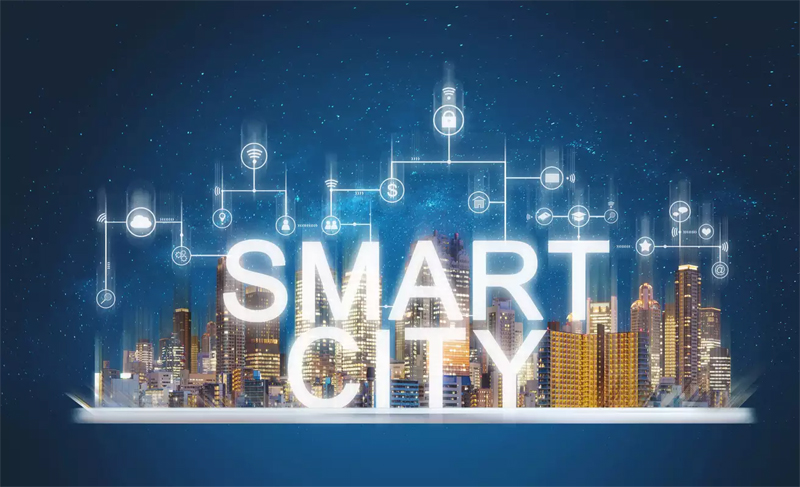Smart Cities in India
Dr Shubham Mahajan
India is undergoing a massive transformation with its Smart Cities Mission, launched by the government in 2015. This ambitious initiative aims to create urban areas that use technology to provide better services to residents, improve the quality of life, and promote sustainable development. But what exactly are smart cities, and how is technology playing a role in this urban transformation?
What Are Smart Cities?
Smart cities are urban areas that use various types of electronic methods and sensors to collect data. This data is then used to manage resources efficiently. Information is used to improve traffic management, reduce pollution, enhance public safety, and provide better public services like water supply and waste management.
Key Technologies in Smart Cities
Several key technologies are driving the smart city revolution in India:
Internet of Things (IoT)
IoT involves connecting everyday objects to the internet, allowing them to send and receive data. In smart cities, IoT devices can be used to monitor air quality, manage traffic lights, and control water systems. For instance, sensors can detect leaks in water pipes and alert authorities immediately. Streetlights equipped with sensors can adjust their brightness based on the presence of pedestrians or vehicles, saving energy.
Big Data and Analytics
The massive amount of data generated by IoT devices is analyzed to make informed decisions. For example, data from traffic cameras can be analyzed to optimize traffic flow, reducing congestion and travel time. Municipal authorities can analyze waste collection data to optimize routes for garbage trucks, ensuring more efficient service.
Artificial Intelligence (AI)
AI can predict and manage urban problems. For example, AI systems can predict traffic jams and suggest alternative routes to drivers, or they can manage energy distribution more efficiently. AI-driven chatbots can assist citizens in accessing information about city services or lodging complaints, improving the responsiveness of municipal services.
Geographic Information System (GIS)
GIS technology helps in mapping and analyzing spatial data. This is crucial for urban planning, disaster management, and infrastructure development. For example, GIS can help identify the best locations for new parks or public transportation routes based on population density and land use patterns.
Mobile Applications
Many smart city services are accessible through mobile apps, making it easier for residents to interact with city services, report issues, and receive updates. Apps can provide real-time information about public transportation, alert residents to emergencies, and even allow them to pay utility bills online.
Examples of Smart Cities in India
Several cities in India are leading the way in becoming smart cities. Here are a few examples:
Pune
Pune has implemented smart parking solutions, public bike-sharing systems, and smart street lighting. These initiatives help reduce traffic congestion and energy consumption. The city’s integrated command and control center monitors various aspects of urban life, allowing for quick responses to issues like traffic jams or water leaks.
Bhopal
Bhopal has set up an integrated command and control center that monitors various city functions, including traffic, water supply, and public safety. This centralized system allows for quick responses to any issues that arise. The city has also introduced smart poles equipped with Wi-Fi, surveillance cameras, and environmental sensors, enhancing connectivity and safety.
Ahmedabad
Ahmedabad is using technology to improve public transportation. The city has introduced a smart card system for its buses, making it easier for people to travel and reducing the need for cash transactions. Additionally, the Bus Rapid Transit System (BRTS) in Ahmedabad uses GPS technology to provide real-time information about bus arrivals, helping commuters plan their journeys more efficiently.
Benefits of Smart Cities
The smart cities initiative brings numerous benefits:
Improved Quality of Life
Residents enjoy better services, reduced pollution, and enhanced public safety. Smart health initiatives, such as telemedicine services and mobile health units, improve access to healthcare, especially in underserved areas.
Efficient Resource Management
Smart technologies help in the efficient use of resources like water and electricity, leading to cost savings and sustainability. Automated waste management systems ensure timely collection and proper disposal of waste, reducing environmental impact.
Economic Growth
The development of smart cities attracts investment and creates job opportunities in the technology sector. The focus on innovation and entrepreneurship fosters the growth of startups and tech companies, boosting the local economy.
Environmental Sustainability
Smart cities focus on reducing carbon footprints through better waste management, efficient energy use, and promoting green transportation options. Renewable energy sources, such as solar panels on public buildings, contribute to a cleaner environment.
Challenges and the Way Forward
While the benefits are clear, there are several challenges in developing smart cities:
High Costs
The initial investment required for setting up smart infrastructure is substantial. Funding these projects often requires collaboration between the government, private sector, and international organizations.
Data Privacy
With the increased use of data, there are concerns about privacy and security. Ensuring that data is protected is crucial. Robust cybersecurity measures and clear regulations are needed to safeguard personal information.
Technological Integration
Integrating various technologies into a cohesive system can be complex and requires significant technical expertise. Training municipal staff and ensuring interdepartmental coordination are essential for successful implementation.
Conclusion
The smart cities initiative is transforming urban India, making cities more livable, efficient, and sustainable. While there are challenges to be addressed, the use of technology in urban planning and management holds great promise for the future. As India continues to innovate and invest in smart technologies, the dream of smart cities is gradually becoming a reality, promising a better quality of life for millions of urban residents. With continued effort and collaboration, India is poised to lead the way in creating the cities of tomorrow, today.


